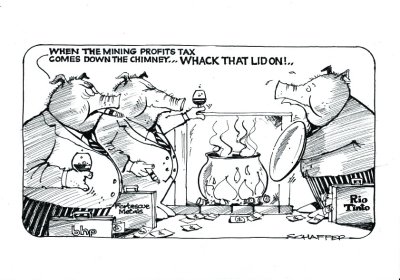The following is abridged from a motion unanimously passed on May 22 by the general membership of the Climate Emergency Network, Victoria. For more information on CEN, visit the group's website.
***
Over the past decade or so, a climate movement has developed in many countries, both developed and developing. There has been a tendency for the climate movement in North America, Europe, and Australia to focus on ecological modernisation as a climate change mitigation strategy.
Climate change
Dozens of campaigners have hit Melbourne’s streets to campaign for the Hazelwood power station to be shut down. Climate action groups in the inner city are doorknocking thousands of homes every weekend to get the message across.
Hazelwood is Australia’s most polluting power station. Climate campaigners have targeted it with protests since the state government extended its operating licence until 2030. It was originally meant to be closed down and replaced in 2005.
Writing in the May 27 West Australian, Paul Murray said WA Labor senators facing election will have to “explain to voters why they intend to support a tax that is so palpably against WA’s best interests”.
For Murray, who was referring to the Rudd government's proposed Resource Super Profits Tax (RSPT), it is simply a given that the interests of the people of Western Australia coincide with the interests of the big mining companies that operate in the state.
The following is abridged from a motion passed at the Australian Manufacturing Workers Union state conference in Western Australia on May 27. The motion was proposed by John Sharp-Collett, secretary of the Retired Members Division.
***
Youth activist and part-time worker Gemma Weedall has been endorsed by the Socialist Alliance to contest the seat of Adelaide in the upcoming federal election.
Weedall recently completed a Bachelor of Social Sciences at the University of Adelaide, where she was a well-known student activist.
She was environment officer on the 2009 Student Representative Council and convened several clubs and collectives. A passionate grassroots climate change activist, Gemma is an active member of the Climate Emergency Action Network (CLEAN)
Around the world, disturbing new evidence of rapid global warming has come to light in the past few weeks. Past temperature records have tumbled. The warming is consistent with climate change predictions.
Victoria and Tasmania had their hottest 12-month period recorded, the Bureau of Meteorology (BOM) said on May 3.
Victoria’s weather was warmer than average month-by-month for year to April. Tasmania was warmer for 11 of the 12 months.
Say what you will about coal, but at least it stays where it’s put. On its way to the user, coal doesn’t gush from the rail trucks, spreading itself through the atmosphere and warming it at about 70 times the rate of carbon dioxide.
Natural gas is different. A new draft study provides evidence that, in the US, enough natural gas leaks into the air to give gas-fired electricity, megawatt-hour for megawatt-hour, a bigger greenhouse impact than electricity from good-quality steaming coal.
I have been selected as the Socialist Alliance federal election candidate for the seat of Gellibrand in Melbourne’s western suburbs. I have spent much of the last 13 years as a union activist here, working in the manufacturing industry.
This is the “rust belt” — the old industrial heartland, and also one of the most ethnically diverse areas of the country.
The following is an abridged speech by Bolivian President Evo Morales to a meeting of the G77 and China, which brings together 130 developing countries, at the United Nations on May 7. The World People’s Conference on Climate Change and the Rights of Mother Earth was held in Cochabamba, Bolivia over April 19-22. For more information on the conference, and for the full resolutions adopted, visit PWCCC.org.
* * *
Melbourne-based climate activist Ben Courtice toured Newcastle, Sydney and Wollongong from May 10 to 12 to report back from the World People’s Summit on Climate Change and the Rights of Mother Earth, which took place in Bolivia in April.
The conference was held in Cochabamba and attracted about 35,000 activists. Bolivia’s radical indigenous President Evo Morales convened the summit. Organisers said people from more than 140 countries attended.
In Sydney, 45 people attended a reportback meeting on May 11, sponsored by Green Left Weekly.
An angry Prime Minister Kevin Rudd told the May 12 7:30 Report that he was “passionate about acting on climate change”. Yes, we know. But if only he’d stop acting and start doing.
The demise of the Rudd Labor government’s proposed Carbon Pollution Reduction Scheme (CPRS) is not the problem. It’s a good thing. The problem is that the government still has no serious climate change policy.
In the Cochabamba football stadium on April 22, diverse indigenous peoples paraded around the track, thousands of local peasants sat in the stands, and thousands more activists from around the globe waved flags and chanted on the field.
A common sentiment flowed through the crowd: something historic had occurred over the previous three days during the April 19-22 World People’s Conference on Climate Change and the Rights of Mother Earth organised by the Bolivian government in Cochabamba.
- Previous page
- Page 16
- Next page










